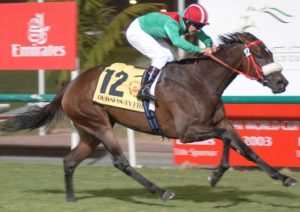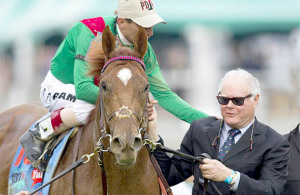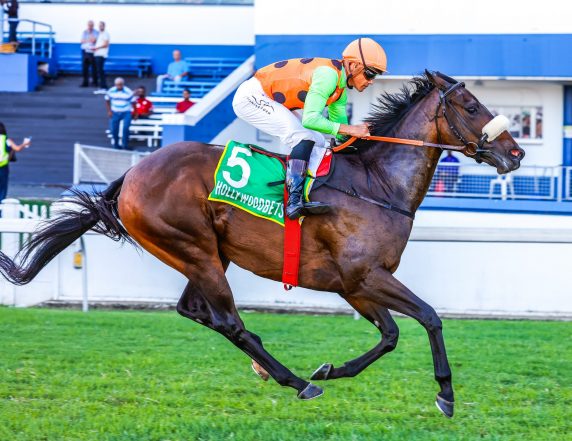“Here’s to the crazy ones, the misfits, the rebels. The trouble makers, the round pegs in the square holes. The ones who see things differently. They’re not fond of rules and they have no respect for the status quo. You can quote them, disagree with them, glorify or vilify them. About the only thing you can’t do is ignore them… because they change things, they push the human race forward. While some may see them as “the crazy ones”, we see genius. Because the people who are crazy enough to think they can change the world – are the ones who do.” Those are the words Steve Jobs used to narrate Apple’s iconic ad campaign which now adorns Youtube and the far corners of social media as memes, posters and wallpaper. Most, if not all of them, could be used to describe Team Valor CEO, Barry Irwin.
Barry could safely be categorised as one of racing’s rounder pegs (and I mean that figuratively). He has been described as unconventional, outspoken, anti-establishment and several other things that probably aren’t fit for print. Having been lucky enough to chat to Barry many times over the years I found that while some of the labels have been fairly earned, there are a few that have been left out. I have always found him to be intelligent and interesting and continuously surprised by how generous he always is with his time and expertise. South Africans, and with a few exceptions, certainly the South African racing fraternity, tend to down play our talents and achievements rather than celebrate them the way they perhaps should be. Barry on the other hand, possesses a particular brand of honesty that may at first glance appear brash or boastful, but once one adjusts your dial to ‘Irwin, it’s usually 100% factual and backed up by (other people’s) stats and opinions. He says what he means and means what he says. It makes for interesting and occasionally surprising conversation.
In his 2011 post Kentucky Derby interview, NBC’s Bob Neumeier asked why Barry had moved all his domestic stock to trainer Graham Motion. In characteristic Barry fashion he answered honestly and fully, “Well I was just tired of other trainers lying to me and I wanted a guy that would tell me the truth.” “Really?” pressed Neumeier. “Yeah,” confirmed Barry again. “How many trainers lied to you?” “Plenty. Anyway, gotta go.”
When the DRF later quizzed Dale Romans, Barry’s personal friend and long-time trainer, about ‘that’ comment, Romans replied “That’s just Barry being Barry.” If you enjoy ‘Barry being Barry’, then I highly recommend his new book, Derby Innovator: The Making Of Animal Kingdom. With his strong ties to South Africa, a lot of the stories feel like revisiting old friends. Barry’s long history in the business means it is also a wonderful opportunity to make fascinating new ones. He was kind enough to chat to me about his latest endeavour.
Why a book and why now?
Two reasons: first, since starting to winter in Florida I found out that I had enough separation from my office to have the time and peace and quiet to write a book. Secondly, before Animal Kingdom’s stud career colored his racing accomplishments, I wanted people to remember him as a racehorse and I wanted to get his story in the racing public’s mind and heart.
What are you hoping to accomplish?
I know some very interesting and surprising stories. I never read about stories like mine in any racing books, so I wanted to tell them in hopes of entertaining readers and giving them some insight into the game that they may not have had.
Re your Kentucky Derby comment, why do you think the racing fraternity reacts so badly to the truth?
Racing’s biggest problem worldwide is that it is and always has been an “insiders’ game.” Insiders want to be able to run their games uninterrupted without any sort of scrutiny getting in the way. This why the “code of silence” is so strong in this fraternity of certain trainers, jockeys, veterinarians and owners.
Why do you feel racing with integrity is so important?
Speaking strictly for my own selfish reasons, I am involved in racing to prove something with my horses and how they are managed/treated. I want to feel as though, when we win a big race, that we have accomplished something. I for one have never understood the satisfaction that one gets by cheating to win. There are two types of people in the minds of most cheaters: the Sharps and the Squares. Once a Sharp, always a sharp. To them, Squares are there for the taking. And, unfortunately, not enough Squares are sufficiently motivated to rid the game of the Sharps. On a macro level, racing is perceived by the public as a game rife with corruption. If we want the game to survive, we must change that perception and it all starts with changing the culture. Racing must adequately fund means to improve integrity like Hong Kong or prepare to wither away and die in the next generation.
Racing survives on betting turnover. Gamblers will find other ways to have fun if they do not feel they are getting a fair shake. I know that big gamblers in America – we call them whales – began leaving the game in the late 1990s and early 2000s when modern day methods of cheating began to take over the highest level of the sport in America. As the betting declines and racing contracts, fewer opportunities to prove horses worldwide will precipitate a severe decline in the value of bloodstock, unless we can turn the game around.
How do people cheat?
Cheating is done by managing pain, enhancing breathing capacity, buffering lactic acid and manipulating the metabolism of a horse. Mostly the methods and substances used to accomplish these goals are illegal. China has proven to be a key source of illegal substances that can be gotten via the Internet. Stopping it would be effective if there was a will to do so, but other than Hong Kong, most racing jurisdictions play at it and are not wholly committed to the idea of cleaning up the sport. Where there is a will, there is a way. It is all about policing and following up with testing. Investigations find drugs, testing verifies them. Testing in and of itself is not wholly effective, because unless one knows what it is looking for, it cannot test for it.
Do you think racing is still a viable prospect for someone who wants to have fun and race a ‘clean’ horse?
Yes, but the real question is how long it will last. I did learn one very valuable lesson about this issue when I raced Animal Kingdom, which is that if you have a horse that really is better than every other horse, he can win the best races, even beating the cheaters.
There is no drug that can make any horse beat the best horse.
But on a daily level, with average horses, the ones that have been given an edge will win more than their fair share and this is what is killing the game in certain locales. What a lot of people do not understand is that the trick in many instances is not speeding up a horse, but doing everything one can to make it tire less quickly than its competition.
What made you so passionate about stamping out drugs in racing?
My first love is Track & Field, or as the world mostly calls them “Athletics.” I saw what cheating with drugs did to marginalize that sport and I wanted to do my utmost to make sure the same thing wouldn’t happen with horse racing.
Usually people are either good at buying horses or at breeding them, yet you have had success with both.
I have always had a great interest in both of the disciplines. Based on my own experiences, I think the game is mostly about trial and error, making mistakes and having the ability to correct them. As for luck, if it isn’t on your side, you are screwed! I have benefited greatly by having good luck, but I also have had some of the worst luck ever. I think if you’ve owned as many horses as I have, this is part of the endeavor.
The Ipi Tombe story is chronicled in your book. How is she doing?
We sold Ipi Tombe at Tattersalls in foal to Sadler’s Wells after she was finished racing. Her best foal unfortunately never raced. This was a Medaglia d’Oro filly that was injured before she could show her talent. She was potentially a monster. The mare is ready to visit Fast Anna, a new young stallion that was extremely speedy.
What makes South Africa attractive to you as a racing / breeding jurisdiction?
I like the way the stock is raised and I like the diversity of the stallions. A young horse has a chance to prove himself in South Africa. South Africa reminds me a lot of California, in that the environment plays just as big a part in the development of an athlete as pedigree.
Horses in South Africa continually outrun their pedigrees.
One thing I do not like and I cautioned against when I spoke at Mick Goss’ Stallion Day several years ago is the increasing influence of veterinarians both at racing and farm level. Horses’ limbs are not regularly being manipulated and by and large I am against trying to trick Mother Nature. Commercialism is the enemy of developing good racehorses and the emergence of the new sales company is a worrisome feature of the current landscape.
You bred and then purchased Animal Kingdom.
We knew Animal Kingdom was special before he made his first start. But not until he reappeared in the early winter of his 3-year-old season, when he had a phenomenal growth spurt at the very end of his season at 2 did we realize what a true monster we had on our hands. He went from being a lean racing prospect to the Incredible Hulk in a matter of a few weeks.
Is it possible to put into words the satisfaction of breeding, owning and producing a (clean) Kentucky Derby winner and stud stallion?
Not really, but one thing that I will say is that it is meaningful to me that Animal Kingdom is the result of a few of my eclectic initiatives with stock that was imported to America. I have always created on a large canvass, I love international racing and bloodstock, and there is no more internationalist than AK.
How is he doing at stud?
Most stallions are popular when they enter stud and experience declines in book size and stud fee until their first foals race. He has been just the opposite. His popularity rests squarely on the obvious quality of his foals. They are impressive. My team has gathered some exciting broodmares from around the globe and we bred 18 mares to him last year. We have several Grade 1 winners and producers that have visited him in his initial three seasons at stud, both in the U.S. and OZ. We are very, very hopeful.













